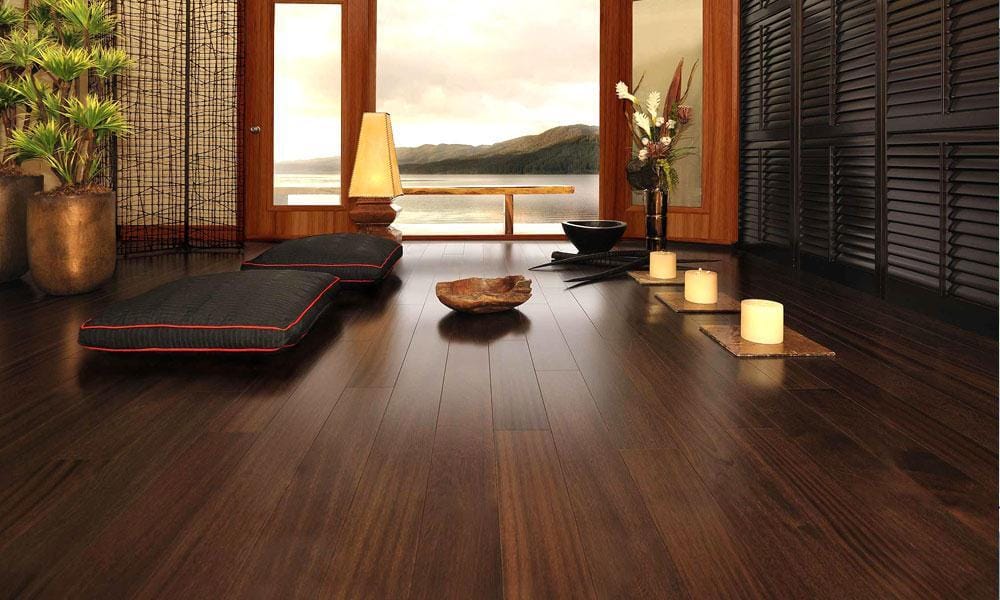
Because of its amazing steadiness and resilience to moisture, teak flooring is a great choice for homes in humid areas. High-humidity homeowners can battle with flooring materials that over time warp, expand, or crack. On the other hand, teak wood flooring is a long-lasting and dependable solution for any house since it is a naturally resilient material that can resist the obstacles given by dampness.
Natural Moisture Resistance of Teak Wood
Teak wood flooring is particularly remarkable in that it resists dampness and moisture. Natural oils and a dense grain structure found in teak help explain its water resistance. These oils help shield the wood from moisture absorption, which in other kinds of wood may cause warping or swelling. Teak wood flooring stays constant in a humid environment, where the air is often damp and water levels vary, so preserving its form and look year-round.
For places like kitchens, baths, and even basements—where excessive moisture is likely—this makes teak a wonderful choice. Unlike many hardwoods, which could suffer from expansion and contraction brought on by humidity, teak is unaffected by these climatic factors.
Aesthetic Appeal and Long-Lasting Beauty
Teak wood flooring’s aesthetic adaptability is another reason it’s ideal for humid regions. Any room gains a little elegance and warmth from the rich, golden-brown color of teak. Teak matures naturally over time to a silvery-gray patina that many homeowners find pleasing. The natural oxidation of the wood, a virtue of teak’s endurance, is what causes this aging process—not moisture damage.
Moreover, teak’s solid, smooth texture guarantees that it stays simple to clean and preserve even in humid surroundings. Teak flooring is a great choice for homeowners who wish for both beauty and utility in their flooring since the natural oils in the wood also aid in resisting dirt and dust. Another reason teak wood flooring is quite popular in high-humidity environments is the minimum upkeep required of it.
Resistance to Pests and Decay
Naturally tolerant to termites, which thrive in humid environments, teak wood is especially ideal for homes in tropical and subtropical climates where termites and other wood-damaging insects are prevalent. Moreover, the natural oils of teak provide a barrier against two common problems in high-humidity surroundings: mildew and mold. These elements help teak to stay in excellent shape for years without degrading from environmental elements or pest damage.
For homes in humid environments, teak wood flooring is a beneficial investment because of its mix of moisture resistance, visual appeal, and natural insect control. Hard to match with other materials, it provides the ideal mix of beauty, utility, and durability.



 The Role of Minimalist Lighting in Modern Interior Design: Trends and Functional Analysis
The Role of Minimalist Lighting in Modern Interior Design: Trends and Functional Analysis  Comprehensive Guide to Mold Removal in Hunterdon County: Safeguarding Your Home and Health
Comprehensive Guide to Mold Removal in Hunterdon County: Safeguarding Your Home and Health  Risks of Asbestos in Home Furnaces
Risks of Asbestos in Home Furnaces  Quartz Countertops Sacramento: Enhancing Homes with Timeless Elegance
Quartz Countertops Sacramento: Enhancing Homes with Timeless Elegance  The Advantages of Selecting a Local Roofing Contractor in Wales, WI
The Advantages of Selecting a Local Roofing Contractor in Wales, WI  A Comprehensive Guide to Roof Replacement in Florissant, MO: Insights from Leading Roofing Experts
A Comprehensive Guide to Roof Replacement in Florissant, MO: Insights from Leading Roofing Experts  The Benefits of a Fire Pit for Year-Round Outdoor Living
The Benefits of a Fire Pit for Year-Round Outdoor Living  Top Security Features to Look for in a Garage Door
Top Security Features to Look for in a Garage Door